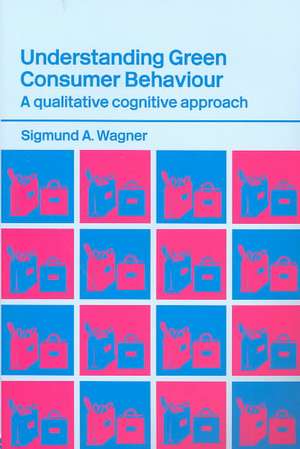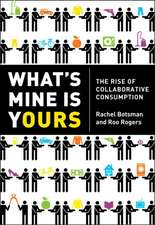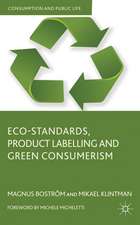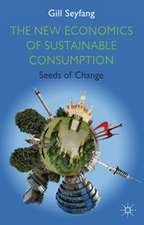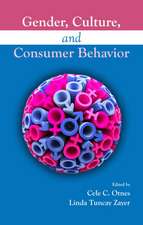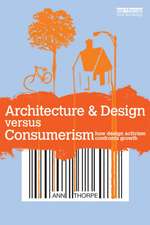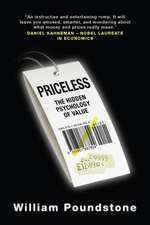Understanding Green Consumer Behaviour: A Qualitative Cognitive Approach: Routledge Studies in Consumer Research
Autor Sigmund A. Wagneren Limba Engleză Paperback – 24 apr 2003
- How do consumers develop 'meaning' regarding green products?
- How are such processes subconsciously structured by certain activities of the mind?
- How intelligent and successful are consumers in assessing the environmentally friendly attributes of products in daily life?
| Toate formatele și edițiile | Preț | Express |
|---|---|---|
| Paperback (1) | 428.00 lei 6-8 săpt. | |
| Taylor & Francis – 24 apr 2003 | 428.00 lei 6-8 săpt. | |
| Hardback (1) | 1795.41 lei 6-8 săpt. | |
| Taylor & Francis – 13 noi 1997 | 1795.41 lei 6-8 săpt. |
Preț: 428.00 lei
Preț vechi: 503.53 lei
-15% Nou
Puncte Express: 642
Preț estimativ în valută:
81.91€ • 85.20$ • 67.62£
81.91€ • 85.20$ • 67.62£
Carte tipărită la comandă
Livrare economică 12-26 aprilie
Preluare comenzi: 021 569.72.76
Specificații
ISBN-13: 9780415316194
ISBN-10: 0415316197
Pagini: 304
Dimensiuni: 156 x 234 x 23 mm
Greutate: 0.48 kg
Ediția:1
Editura: Taylor & Francis
Colecția Routledge
Seria Routledge Studies in Consumer Research
Locul publicării:Oxford, United Kingdom
ISBN-10: 0415316197
Pagini: 304
Dimensiuni: 156 x 234 x 23 mm
Greutate: 0.48 kg
Ediția:1
Editura: Taylor & Francis
Colecția Routledge
Seria Routledge Studies in Consumer Research
Locul publicării:Oxford, United Kingdom
Public țintă
Postgraduate, Professional, and UndergraduateCuprins
1. A Cognitive Study into Environmentally-Orientated Consumption 1.1 The green consumer 1.2 A research program for consumer behaviour 1.3 Researching green consumer behaviour 2. Cognitive Consumer Research 2.1 Understanding understanding 2.2 Knowledge structures 2.3 Experience, knowledge structure development and intelligence 2.4 Research questions on green consumer cognition 2.5 Conclusions 3. Empirical Research into Green Consumer Behaviour 3.1 Qualitative versus quantitative cognitive research 3.2 Data collection 3.3 Data analysis 3.4 Conclusions 4. Classification of Consumers 4.1 Classification and cluster analysis 4.2 Analyses of scattergrams and correlation matrices 4.3 Hierarchical cluster analyses 4.4 Sensitivity analyses 4.5 Paradigmatic subjects and cognitive categories 4.6 Conclusions 5. Interpretation of Knowledge Structures 5.1 Knowledge content 5.2 Cognitive operations 5.3 Schematic nature of knowledge 6. Experience and Learning: Problem-Solving Behaviour of the Green Consumer 6.1 Familiarity and learning 6.2 Ability and successful green consumer behaviour 6.3 Conclusions 7. The Beginning of Knowledge 7.1 A new approach to cognition 7.2 Conceptual fruitfulness of contextual research 7.3 Practical relevance of contextual research 7.4 Issues for future research
Descriere
Through the study of green, environmentally friendly consumers, this book incorporates original, groundbreaking anthropological and cognitive research to examine basic aspects of the workings of the human mind.
